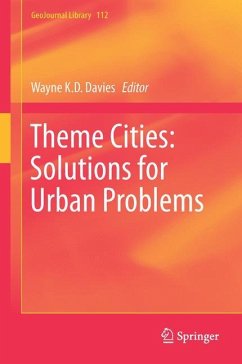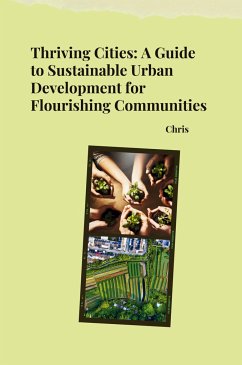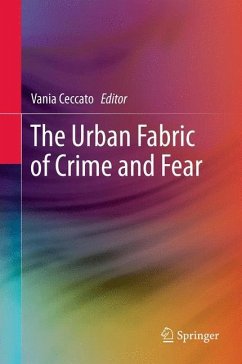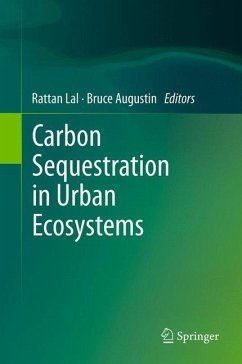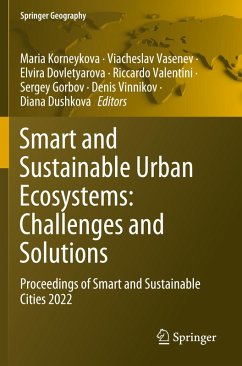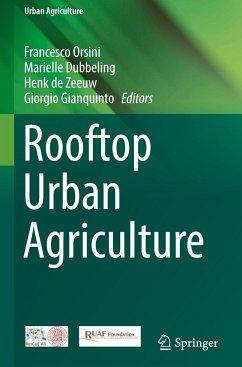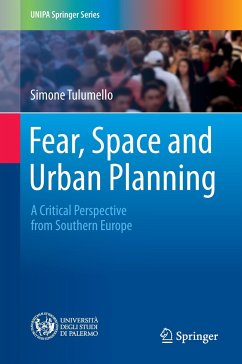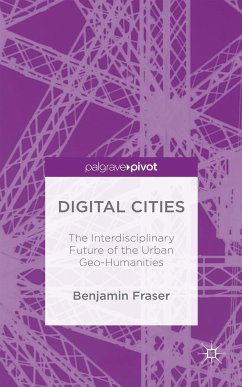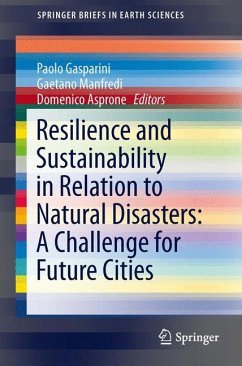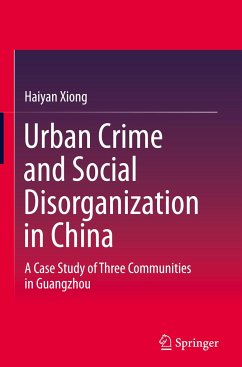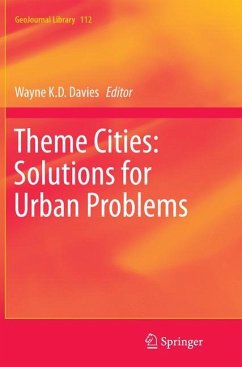
Theme Cities: Solutions for Urban Problems
Versandkostenfrei!
Versandfertig in 6-10 Tagen
76,99 €
inkl. MwSt.

PAYBACK Punkte
38 °P sammeln!
This book reviews a series of new urban ideas or themes designed to help make cities more liveable, sustainable, safe and inclusive. Featuring examples drawn from cities all over the world, the various chapters provide critical assessments of each of the various approaches and their potential to improve urban life.New Urbanism: creating new areas based on a more humane scale with neighbourhood cohesionJust Cities: creating more fairness in decision-making so all residents can participate and benefit.Green Cities: helping places become greener with environmental rehabilitation and protectionSus...
This book reviews a series of new urban ideas or themes designed to help make cities more liveable, sustainable, safe and inclusive. Featuring examples drawn from cities all over the world, the various chapters provide critical assessments of each of the various approaches and their potential to improve urban life.
New Urbanism: creating new areas based on a more humane scale with neighbourhood cohesion
Just Cities: creating more fairness in decision-making so all residents can participate and benefit.
Green Cities: helping places become greener with environmental rehabilitation and protection
Sustainable Cities: avoiding the waste of resources and harmful pollution in settlements
Transition Towns: developing local initiatives for more sustainable actions
Winter Cities: making cities in cold climates more comfortable and enjoyable
Resilient Cities: strengthening cities to better enable them to withstand natural hazards
Creative Cities: supporting cultural industries and attracting talented individuals
Knowledge Cities: creating, renewing and spreading knowledge and innovation
Safe Cities: ensuring that citizens are better protected against criminal actions
Healthy Cities: making improvements in the health of people in cities
Festive Cities: rediscovering the utility of festive events in settlements
Slow Cities: enhancing locally unique activities, such as local cuisines and community interactions
This volume offers a host of approaches designed to give a new direction and focus to planning policies, helping readers to fully understand the advantages and disadvantages of each potential idea. It seeks to solve the many current problems associated with urban developments, making it a valuable resource for university and college students in urban geography, urban planning, urban sociology and urban studies as well as to planners and the general public.
New Urbanism: creating new areas based on a more humane scale with neighbourhood cohesion
Just Cities: creating more fairness in decision-making so all residents can participate and benefit.
Green Cities: helping places become greener with environmental rehabilitation and protection
Sustainable Cities: avoiding the waste of resources and harmful pollution in settlements
Transition Towns: developing local initiatives for more sustainable actions
Winter Cities: making cities in cold climates more comfortable and enjoyable
Resilient Cities: strengthening cities to better enable them to withstand natural hazards
Creative Cities: supporting cultural industries and attracting talented individuals
Knowledge Cities: creating, renewing and spreading knowledge and innovation
Safe Cities: ensuring that citizens are better protected against criminal actions
Healthy Cities: making improvements in the health of people in cities
Festive Cities: rediscovering the utility of festive events in settlements
Slow Cities: enhancing locally unique activities, such as local cuisines and community interactions
This volume offers a host of approaches designed to give a new direction and focus to planning policies, helping readers to fully understand the advantages and disadvantages of each potential idea. It seeks to solve the many current problems associated with urban developments, making it a valuable resource for university and college students in urban geography, urban planning, urban sociology and urban studies as well as to planners and the general public.





